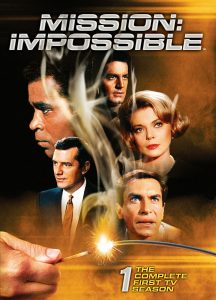One of the most common questions authors face is a deceptively difficult one to answer: “Where do you get your ideas?” Yet, the answers to that common question can be almost as interesting as the resulting story. Welcome to You’re My Inspiration, a new column dedicated to discovering what inspires a particular author and their work. Whether it be a lifelong love of mythical creatures, a fascinating bit of history, or a trip to a new and exciting place, You’re My Inspiration is all about those special and sometimes dark things that spark ideas and result in great stories.
This week, we bring you Cate Glass, who — in case you haven’t heard — is our featured Book Club author for March. We’ll be discussing her “debut,” An Illusion of Thieves at the end of the month. And did you know that Cate Glass is the pen name for best-selling fantasy author Carol Berg? If you didn’t, you do now! If that’s not enough to make sure pick up An Illusion of Thieves immediately, then join Cate/Carol for a peek behind the scenes, and learn what inspired this latest fantasy series!
The Play’s the Thing
“Wait! Isn’t that a line from Hamlet? Are you telling me that your new fantasy adventure series is somehow related to one of the greatest tragedies ever written?”
“Well,” I say, blushing, “yes, I am.”
There was a time when I believed that the idea for a novel must spring forth fully formed like Athena from the head of Zeus. Of, course, that was before I ever wrote any novels and didn’t even imagine that I could.
After birthing a few, I believed my best stories always grew from a particular kind trope-whacking on my part: a handsome, wealthy heroic figure who was wholly unworthy of the great destiny awaiting him; a uniquely skilled warrior who was a pacifist by nature, a mature woman who was not only not an ingenue princess-in-waiting, but a bitter exile who believed herself dead. You get the drift. I would put that person in an interesting world and a difficult situation and see where it took me.
The more I thought about it, however, the more I realized that my attraction to some of those tropes — and my delight in whacking them — was merely the spark that ignited a collection of ideas, images, and delights that had evolved from a lifetime of absorbing stories. So now that I am tasked with tracing the inspiration for my new series, the Chimera, I know to dig a little deeper.
The Chimera series — so far An Illusion of Thieves, the newly released A Conjuring of Assassins, and and A Summoning of Demons, currently in progress — present the story of four sorcerers who hire out their extraordinary talents to Cantagna’s Shadow Lord (imagine a most seductive Godfather) for missions of intrigue that ungifted spies would find impossible. The setting is my version of the Italian Renaissance, and one of the trickiest parts of the situation is that the use of sorcery is a crime punishable by death, no matter who hired you.
The series was sparked, not by an idea about a particular trope-whacking character or by the title of an National Public Radio essay (that’s another story), but by a chance encounter with an old TV series called Mission Impossible. (Yes, the series that later morphed into a series of Tom Cruise action movies, which are not at all the same thing.)
 Every episode of Mission Impossible was centered on a some snarl of political, economic, or international evildoing that the government wished to be stopped, but could not afford to be publicly involved in. The little group who took on these missions were not spies or secret agents, but people with specific talents that made them able to adapt to a wide variety of situations. MI’s characters were shallow. We knew little or nothing about their backgrounds or their lives beyond the missions or what they thought about it as it unfolded. I didn’t like that part. The pleasure of the series was watching them create an alternate reality in order to hornswoggle the villains of the week. Tension was always high, because the alternate reality could fall apart at any moment.
Every episode of Mission Impossible was centered on a some snarl of political, economic, or international evildoing that the government wished to be stopped, but could not afford to be publicly involved in. The little group who took on these missions were not spies or secret agents, but people with specific talents that made them able to adapt to a wide variety of situations. MI’s characters were shallow. We knew little or nothing about their backgrounds or their lives beyond the missions or what they thought about it as it unfolded. I didn’t like that part. The pleasure of the series was watching them create an alternate reality in order to hornswoggle the villains of the week. Tension was always high, because the alternate reality could fall apart at any moment.
As authors do, I thought what if the talents were magical? What if the situations occurred in a non-modern world? And to make those situations more fraught with peril, what if the very talents that enabled them to do these seemingly impossible tasks were forbidden?
As this caught my imagination, I was immediately flooded with ideas about who and where and what to look for to make it my own. Where did those come from?
Shakespeare
The play’s the thing / Wherein I’ll catch the conscience of the King.
Shakespeare’s plays have their share of political conflicts solved or made worse by assassination, usurpers, or glorious battles. Hamlet did something different. The Prince of Denmark uses a group of actors to perform a play that will surely jar the king’s conscience if he is guilty of murder. Hamlet would watch and judge. He didn’t beat the truth out of the king or torture him or defeat him in a battle. He staged a trap.
The Ensemble
The ensemble caper/adventure has had a long life in story — from Dumas’ musketeers to Michael Crichton’s The Great Train Robbery. In modern crime fiction like Roger Hobbs’ Ghostman. Nancy Drew would still be locked in some attic if it weren’t for Bess, George, and Ned. We love fantasy like that of Scott Lynch, Leigh Bardugo, and Master Tolkien himself. In film, there’s Ocean’s However-many, and you’ll find variants aplenty in the current video stream. Some of my favorites? White Collar, Burn Notice, Leverage, and Person of Interest.
What separates the trope, the familiar, satisfying story/character/situation that resonates through all these stories, from the cliché, the hackneyed, predictable stereotypical execution? I believe it is characters who are individual people with interesting relationships to each other, depicted against a backdrop of the unexpected.

Mission Impossible, the series, had a cast of five regulars — the leader, the actress, the actor, the techie, and the muscle/wheelman. Subject specialists were brought in from time to time.
I certainly did not want thin characters. My players would be individuals embedded in their particular place and time, with their own histories, beliefs, and peculiarities. These aren’t professional agents heading off to assassinate a political figure in a third world country. They have to live in the same milieu as the people they are deceiving, and not get caught by the very authorities who have hired them. So I mixed and mingled these roles, and populated them with four individuals.
Pimpernels, Saints, and Other Impersonators
In Mission Impossible the players often used their acting backgrounds to intrude on the nefarious schemes they were trying to unravel. But sometimes the only way into the Mafia or the foreign government they were trying to upend was to substitute one of themselves for a friend/ally/adversary of their mark. In one of the hokiest appurtenances of the series, they created latex masks that would transform them into perfect likenesses of those they wanted to portray. (The movies did this, too, using somewhat more sophisticated technology.)
 There is a long literary tradition of impersonation. Shakespeare’s plays are replete with mistaken identities, amnesia, and mischief-making fairies who distort characters’ perceptions of each other. Sometimes it is makeup or a physical mask that creates the deception — think Leslie Charteris’s Simon Templar (the Saint) or Zorro, who moved from pulp magazine stories to television to film, always wearing a mask. Sometimes the mask is a exterior personality that is so distinct from the truth and so easily dismissed, the villains never actually see the real person. Here we find Baroness Orczy and her beloved Scarlet Pimpernel — one of my favorite swashbucklers. You can see reflections of the Pimpernel in a succession of underestimated characters such as Clark Kent and Peter Parker. (Pssst…you’ll find a robust version in my Collegia Magica books.)
There is a long literary tradition of impersonation. Shakespeare’s plays are replete with mistaken identities, amnesia, and mischief-making fairies who distort characters’ perceptions of each other. Sometimes it is makeup or a physical mask that creates the deception — think Leslie Charteris’s Simon Templar (the Saint) or Zorro, who moved from pulp magazine stories to television to film, always wearing a mask. Sometimes the mask is a exterior personality that is so distinct from the truth and so easily dismissed, the villains never actually see the real person. Here we find Baroness Orczy and her beloved Scarlet Pimpernel — one of my favorite swashbucklers. You can see reflections of the Pimpernel in a succession of underestimated characters such as Clark Kent and Peter Parker. (Pssst…you’ll find a robust version in my Collegia Magica books.)
The leader of my little group has the ability and the knowledge of the world broad enough to believably fit in as servant or scholar, aristocrat or illiterate kidnapper. But a woman who has lived in the aristocratic milieu of Cantagna, thus accumulating the knowledge and contacts to become the Shadow Lord’s agent, might be easily recognized. So if all else fails, my leader has a particular variety of magic that allows her to take on a new persona much more completely than a latex mask could provide. Much to her distress, that kind of disguise is not as easy to take off as it is to put on.
Wheelmen and Techies and Artists, Oh My
We associate the real Italian Renaissance with a renewal and dispersal of classical art and learning throughout western Europe. So, too, with my pseudo-Renaissance city. Thus it seemed fitting to have one of my players be an artist — a painter, sculptor, and smith. He’s accustomed to dealing with foundries and the chemicals for making paints, inks, and the desired patinas on his sculpture. He’s a businessman as well as artist, and thus has useful resources. Dumond’s magic grows out of his art…but saying too much would be giving away some of the fun. But let’s say he is a break-in artist and getaway specialist in addition to the personality, the history, and the wife he brings to the game.

School of Athens by Raphael
Swashbucklers and Pupils
 Physical danger can always arise even in the most cerebral of schemes, thus at least one of our players must be able to fight. In the tradition of swashbucklers throughout literature — the Three and Four Musketeers, the Man in the Iron Mask, Zorro, Inigo Montoya, Eliot Spencer (from Leverage), Jean-Claude (from Curt Craddock’s Risen Kingdoms books) and all the rest — my third player enters the story with secrets and a murky past. He brings professional muscle to the adventures and is able to teach our amateur players how to lurk and sneak and tail a mark, and accomplish all the other action bits needed to accomplish the Chimera’s goals. His experience in avoiding the limelight that his skills, both ordinary and extraordinary, could focus on him enable him to become my heroine’s fellow impersonator. He’s been around, though he refuses to divulge exactly where.
Physical danger can always arise even in the most cerebral of schemes, thus at least one of our players must be able to fight. In the tradition of swashbucklers throughout literature — the Three and Four Musketeers, the Man in the Iron Mask, Zorro, Inigo Montoya, Eliot Spencer (from Leverage), Jean-Claude (from Curt Craddock’s Risen Kingdoms books) and all the rest — my third player enters the story with secrets and a murky past. He brings professional muscle to the adventures and is able to teach our amateur players how to lurk and sneak and tail a mark, and accomplish all the other action bits needed to accomplish the Chimera’s goals. His experience in avoiding the limelight that his skills, both ordinary and extraordinary, could focus on him enable him to become my heroine’s fellow impersonator. He’s been around, though he refuses to divulge exactly where.
 And lastly, where there are Musketeers, there is often a D’Artagnan, the talented pupil, anxious to join the fray and rash. The Luke Skywalker. Antonio Banderas’s wonderfully portrayed “new Zorro” in The Mask of Zorro. The rash and awkward kid who has big talents, light fingers, few scruples, and lots to learn, who has enough potential to make it worth keeping him in the mix. Thus we meet an illiterate, ignorant almost sixteen-year-old with a formidable elder sister he scarcely knows.
And lastly, where there are Musketeers, there is often a D’Artagnan, the talented pupil, anxious to join the fray and rash. The Luke Skywalker. Antonio Banderas’s wonderfully portrayed “new Zorro” in The Mask of Zorro. The rash and awkward kid who has big talents, light fingers, few scruples, and lots to learn, who has enough potential to make it worth keeping him in the mix. Thus we meet an illiterate, ignorant almost sixteen-year-old with a formidable elder sister he scarcely knows.
So the answer is…
I found inspiration for the Chimera books from a deluge of story, and now I am back at trope-whacking. You can tell Romeo and Juliet’s story a thousand times. Sometimes it remains a pale imitation. Sometimes it soars. The story of a village girl or farm boy who discovers they have powers that can change the world can be told with magic or without, in present day Nebraska or in ancient Greece or on a newly colonized planet or in a fantasy world that wars with dragons. I hope my stories of the Chimera add something new and enjoyable to the canon of players whose adventures entrap the most wicked intents of a villain.
 Though born in Texas and now living in Colorado, Cate Glass has lived a large portion of her life in Middle Earth, Camelot, Wonderland, Jim Chee’s New Mexico, Victorian London, Cold War Berlin, the Welsh borderlands, River Heights….uh-huh. While studying mathematics and software engineering at Rice University and the University of Colorado respectively, Cate carved out a place for studies in English, History of Art, and reading, reading, reading. While working as a software engineer, she took up a hobby of writing her own fiction. (Cate Glass is a pseudonym for Carol Berg, award-winning, bestselling author of fifteen epic fantasy novels.)
Though born in Texas and now living in Colorado, Cate Glass has lived a large portion of her life in Middle Earth, Camelot, Wonderland, Jim Chee’s New Mexico, Victorian London, Cold War Berlin, the Welsh borderlands, River Heights….uh-huh. While studying mathematics and software engineering at Rice University and the University of Colorado respectively, Cate carved out a place for studies in English, History of Art, and reading, reading, reading. While working as a software engineer, she took up a hobby of writing her own fiction. (Cate Glass is a pseudonym for Carol Berg, award-winning, bestselling author of fifteen epic fantasy novels.)
Websites: Cate Glass || Carol Berg
Photo by Mark Stevens
Want to talk about what inspired you as a writer, and/or your current release? Check out our guidelines and fill out the form here.



No Comments